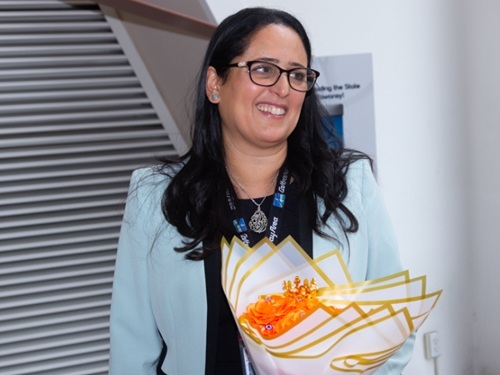Several Maryland agencies are joining a “learning collaborative” spearheaded by the National Governors Association to find more ways to deploy data to not only reduce impaired driving-related injuries and fatalities, but overall traffic crashes as well.
[Above photo by MarylandGovPics.]
Funded by a grant from the Centers for Disease Control and Prevention, this new “learning collaborative” seeks to improve quality analysis of traffic data to better and properly identify target groups, adapt and refine countermeasures, plus evaluate the effectiveness of implemented strategies to reduced drunk- and drugged-driving incidences, as well as reduce overall traffic crashes.

“The goal is to reduce – and ultimately eliminate – traffic-related injuries and fatalities,” said Chrissy Nizer, administrator of the Maryland Department of Transportation’s Motor Vehicle Administration, in a statement. “Using a data driven approach will allow us to effectively craft strategies to develop impaired driving enforcement and education programs.”
Nizer will also lead a “core team” of Maryland agency personnel participating in this collaborative, including: Gregory Slater, Maryland DOT Secretary; Colonel Jerry Jones, superintendent of the Maryland State Police; Fran Phillips, deputy secretary of the Maryland Department of Health; Michael Leahy, the state’s information technology secretary; and Rebecca Phipps from the toxicology division of Maryland’s Chief Medical Examiner office.
The MVA explained that it hopes to make several enhancements based on its participation in this “collaboration,” including:
- Improvement and expansion of the state’s data system to track impaired driving offenders from arrest to adjudication to treatment.
- Increase of timeliness and accessibility of Maryland’s crash data through dashboards to give highway safety partners access to timely standardized data.
- An analysis of Maryland’s impaired driving program to determine needs regarding manpower, training, technology, legislation and regulation.
- Creation of a process to increase judicial acceptance of drug recognition expert evidence in the absence of blood test results.
- Development of educational programs directed at judiciary, prosecutors and law enforcement.
The agency noted that from 2014 to 2018, Maryland averaged 6,779 crashes, 3,190 injuries, and 159 fatalities annually related to impaired driving – accounting for 31 percent of the state’s total roadway fatalities.

Additionally, heroin and opioid use in the state increased the burden on Maryland’s Drug Recognition Expert Program and police testing lab.
“Eliminating crashes involving alcohol or drugs has been a priority for my administration and for traffic safety professionals throughout the state,” noted Governor Larry Hogan (R).
“This learning collaborative will help Maryland implement evidence-based programs and practices to reduce impaired driving,” he said.
 States
States
Dina El-Tawansy Appointed Director of Caltrans
July 11, 2025 States
States

